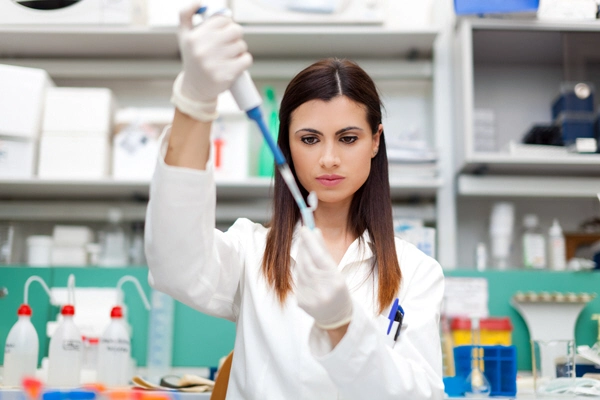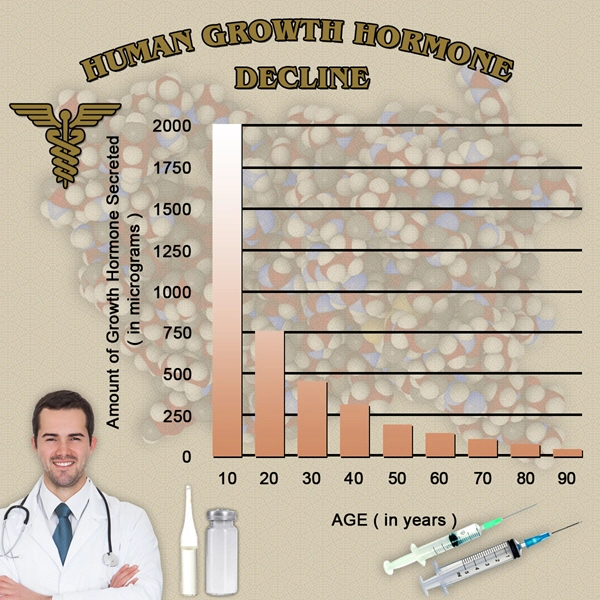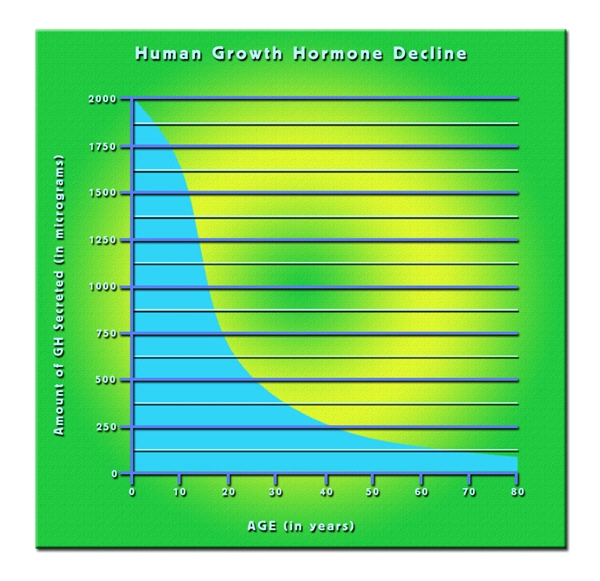Introduction
Hypogonadism, characterized by the body's inability to produce sufficient testosterone, has been increasingly recognized as a significant health concern among American males, particularly those living with HIV. This condition can lead to a myriad of symptoms, including decreased libido, fatigue, and muscle loss, which can significantly impact the quality of life. The intersection of HIV and hypogonadism presents a unique challenge, necessitating a deeper understanding of the prevalence and underlying mechanisms. This article delves into a cross-sectional study examining the prevalence of hypogonadism in American males with HIV, focusing on hormonal and immunological markers.
Study Design and Methodology
The study in question utilized a cross-sectional approach to assess the prevalence of hypogonadism among American males diagnosed with HIV. Participants were recruited from various healthcare facilities across the United States, ensuring a diverse representation of demographics and stages of HIV infection. Hormonal assessments included measurements of total testosterone, free testosterone, and sex hormone-binding globulin (SHBG). Immunological markers such as CD4 cell counts and viral load were also evaluated to understand their correlation with hypogonadism.
Prevalence of Hypogonadism
The findings revealed a strikingly high prevalence of hypogonadism among the study participants. Approximately 30% of the males with HIV were diagnosed with hypogonadism, a rate significantly higher than that observed in the general male population. This prevalence underscores the urgent need for targeted screening and management strategies for this vulnerable population.
Hormonal Markers and Their Implications
The hormonal analysis indicated that total testosterone levels were significantly lower in males with HIV compared to healthy controls. Moreover, the levels of free testosterone, which is the biologically active form of the hormone, were also notably reduced. These findings suggest that the hypogonadal state in males with HIV is not merely a result of decreased total testosterone but also involves alterations in the binding and availability of the hormone.
Immunological Markers and Hypogonadism
An intriguing aspect of the study was the examination of the relationship between immunological markers and hypogonadism. The data showed a significant inverse correlation between CD4 cell counts and the prevalence of hypogonadism. Males with lower CD4 counts were more likely to exhibit hypogonadal symptoms, suggesting that the severity of HIV infection may directly influence testosterone production. Additionally, higher viral loads were associated with increased hypogonadism prevalence, further highlighting the complex interplay between the immune system and hormonal regulation.
Clinical Implications and Management
The high prevalence of hypogonadism in American males with HIV necessitates a multifaceted approach to management. Clinicians should consider routine screening for hypogonadism in this population, particularly in those with advanced HIV disease. Testosterone replacement therapy (TRT) may be a viable option for those diagnosed with hypogonadism, but it should be administered with caution due to potential interactions with antiretroviral medications. Additionally, lifestyle interventions such as regular exercise and a balanced diet can help mitigate some of the symptoms associated with hypogonadism.
Conclusion
The cross-sectional study on the prevalence of hypogonadism in American males with HIV provides valuable insights into the hormonal and immunological dynamics of this condition. The high prevalence of hypogonadism in this population underscores the need for increased awareness and targeted interventions. By understanding the intricate relationship between HIV and hypogonadism, healthcare providers can better tailor their approaches to improve the overall health and well-being of American males living with HIV.

- Hypogonadism and Sleep Disorders: A Bidirectional Link in American Males [Last Updated On: December 21st, 2025] [Originally Added On: February 18th, 2025]
- Understanding and Managing Hypogonadism: A Comprehensive Guide for American Males [Last Updated On: March 11th, 2025] [Originally Added On: March 11th, 2025]
- Unveiling the Link Between Hypogonadism and Mental Health: A Comprehensive Guide for American Males [Last Updated On: March 11th, 2025] [Originally Added On: March 11th, 2025]
- Unveiling the Effects of Hypogonadism on Muscle Vitality in American Males [Last Updated On: March 16th, 2025] [Originally Added On: March 16th, 2025]
- Unraveling the Nexus of Hypogonadism and Autoimmune Diseases: A Comprehensive Guide for American Males [Last Updated On: March 16th, 2025] [Originally Added On: March 16th, 2025]
- Unveiling the Link Between Hypogonadism and Impaired Wound Healing in American Males [Last Updated On: March 16th, 2025] [Originally Added On: March 16th, 2025]
- Unraveling the Nexus of Hypogonadism and Parathyroid Function: Insights for American Males [Last Updated On: March 16th, 2025] [Originally Added On: March 16th, 2025]
- Exercise Boosts Testosterone: Managing Hypogonadism in American Males [Last Updated On: March 18th, 2025] [Originally Added On: March 18th, 2025]
- Hypogonadism's Impact on Liver Function: Management and Monitoring Strategies [Last Updated On: March 18th, 2025] [Originally Added On: March 18th, 2025]
- Hypogonadism and Chronic Pain: Integrated Treatment Approaches for American Males [Last Updated On: March 19th, 2025] [Originally Added On: March 19th, 2025]
- Hypogonadism and Testosterone Therapy: Benefits, Risks, and Considerations for American Males [Last Updated On: March 19th, 2025] [Originally Added On: March 19th, 2025]
- Ethical Considerations in Treating Hypogonadism with Testosterone Therapy in American Men [Last Updated On: March 19th, 2025] [Originally Added On: March 19th, 2025]
- Hypogonadism and Thyroid Dysfunction: Exploring Correlations and Clinical Implications in American Males [Last Updated On: March 20th, 2025] [Originally Added On: March 20th, 2025]
- Hypogonadism and Prostate Health: Understanding Links, Risks, and Management Strategies [Last Updated On: March 20th, 2025] [Originally Added On: March 20th, 2025]
- Understanding Hypogonadism: Causes, Symptoms, and Treatment for American Males [Last Updated On: March 20th, 2025] [Originally Added On: March 20th, 2025]
- Hypogonadism in American Males: Links to Cancer Risk and Management Strategies [Last Updated On: March 20th, 2025] [Originally Added On: March 20th, 2025]
- Hypogonadism's Impact on Men's Health and Quality of Life: Diagnosis, Treatment, and Support [Last Updated On: March 21st, 2025] [Originally Added On: March 21st, 2025]
- Hypogonadism and Autoimmune Disorders: Interplay, Management, and Future Research in American Males [Last Updated On: March 21st, 2025] [Originally Added On: March 21st, 2025]
- Medical Imaging Advances in Diagnosing Hypogonadism: MRI, CT, and Ultrasound Techniques [Last Updated On: March 21st, 2025] [Originally Added On: March 21st, 2025]
- Hypogonadism's Impact on Skin Health in American Males: TRT Benefits and Risks [Last Updated On: March 22nd, 2025] [Originally Added On: March 22nd, 2025]
- Hypogonadism's Impact on Bone Health: Diagnosis, TRT, and Management Strategies [Last Updated On: March 22nd, 2025] [Originally Added On: March 22nd, 2025]
- Managing Hypogonadism: A Collaborative Approach by Medical Specialists [Last Updated On: March 22nd, 2025] [Originally Added On: March 22nd, 2025]
- Exploring Alternative Medicines for Hypogonadism Management in American Males [Last Updated On: March 22nd, 2025] [Originally Added On: March 22nd, 2025]
- Hypogonadism Screening Protocols and Recommendations for American Males [Last Updated On: March 22nd, 2025] [Originally Added On: March 22nd, 2025]
- Hypogonadism in American Males: Addressing Psychological Needs Through Tailored Counseling [Last Updated On: March 23rd, 2025] [Originally Added On: March 23rd, 2025]
- Hypogonadism and Hair Loss: Treatment Options and Outcomes for American Males [Last Updated On: March 23rd, 2025] [Originally Added On: March 23rd, 2025]
- Hypogonadism's Impact on Neurological Health in American Males: Cognitive and Mood Effects [Last Updated On: March 23rd, 2025] [Originally Added On: March 23rd, 2025]
- Hypogonadism's Impact on Gastrointestinal Health in American Males: A Comprehensive Review [Last Updated On: March 24th, 2025] [Originally Added On: March 24th, 2025]
- Hypogonadism and Hearing Loss: Exploring the Hormonal Connection in American Males [Last Updated On: March 24th, 2025] [Originally Added On: March 24th, 2025]
- Managing Hypogonadism in American Males with Kidney Disease: Strategies and Challenges [Last Updated On: March 24th, 2025] [Originally Added On: March 24th, 2025]
- Hypogonadism Treatment Advances: Trends, Therapies, and Lifestyle Interventions [Last Updated On: March 24th, 2025] [Originally Added On: March 24th, 2025]
- Hypogonadism's Impact on Blood Pressure: Symptoms, Management, and Lifestyle Strategies [Last Updated On: March 24th, 2025] [Originally Added On: March 24th, 2025]
- Hypogonadism and Cholesterol: Implications for Cardiovascular Health in American Males [Last Updated On: March 24th, 2025] [Originally Added On: March 24th, 2025]
- Hypogonadism's Impact on Respiratory Health in American Males: Mechanisms and Clinical Insights [Last Updated On: March 24th, 2025] [Originally Added On: March 24th, 2025]
- Medical Innovations Transform Hypogonadism Treatment for American Males [Last Updated On: March 24th, 2025] [Originally Added On: March 24th, 2025]
- Hypogonadism's Impact on Joint Health: Treatment and Management Strategies [Last Updated On: March 25th, 2025] [Originally Added On: March 25th, 2025]
- Hypogonadism and Headaches: Diagnosis, Treatment, and Management Strategies for American Males [Last Updated On: March 25th, 2025] [Originally Added On: March 25th, 2025]
- Medical Nutrition Therapy for Managing Hypogonadism in American Males [Last Updated On: March 26th, 2025] [Originally Added On: March 26th, 2025]
- Hypogonadism's Impact on Muscle Health in American Males: Diagnosis and Treatment Strategies [Last Updated On: March 26th, 2025] [Originally Added On: March 26th, 2025]
- Medical Technology Revolutionizes Hypogonadism Diagnosis in American Males [Last Updated On: March 26th, 2025] [Originally Added On: March 26th, 2025]
- Hypogonadism and Balance Disorders: Exploring the Link and Treatment Options in American Males [Last Updated On: March 26th, 2025] [Originally Added On: March 26th, 2025]
- Hypogonadism and Anemia in American Males: Diagnosis, Management, and Quality of Life [Last Updated On: March 26th, 2025] [Originally Added On: March 26th, 2025]
- Hypogonadism's Impact on Cognitive Function in American Males: A Comprehensive Review [Last Updated On: March 26th, 2025] [Originally Added On: March 26th, 2025]
- Hypogonadism's Impact on Eye Health: A Comprehensive Overview for American Males [Last Updated On: March 26th, 2025] [Originally Added On: March 26th, 2025]
- Medical Rehabilitation for Hypogonadism: Enhancing Quality of Life in American Males [Last Updated On: March 27th, 2025] [Originally Added On: March 27th, 2025]
- Hypogonadism's Impact on Immune Function in American Males: Insights and Therapies [Last Updated On: March 27th, 2025] [Originally Added On: March 27th, 2025]
- Preventing Hypogonadism in American Males: Strategies and Interventions [Last Updated On: March 27th, 2025] [Originally Added On: March 27th, 2025]
- Hypogonadism in Transgender Men: Diagnosis, Treatment, and Personalized Care [Last Updated On: March 27th, 2025] [Originally Added On: March 27th, 2025]
- Hypogonadism's Emotional Impact: Understanding and Managing Mental Health in American Men [Last Updated On: March 27th, 2025] [Originally Added On: March 27th, 2025]
- Hypogonadism and Allergies: Exploring Links and Implications for American Men [Last Updated On: March 27th, 2025] [Originally Added On: March 27th, 2025]
- Hypogonadism's Impact on Dental Health: A Comprehensive Overview for American Males [Last Updated On: March 27th, 2025] [Originally Added On: March 27th, 2025]
- Understanding Hypogonadism: Symptoms, Treatment, and Lifestyle Management for American Males [Last Updated On: March 27th, 2025] [Originally Added On: March 27th, 2025]
- Hypogonadism and GERD: Exploring Hormonal Links and Treatment Implications in American Males [Last Updated On: March 27th, 2025] [Originally Added On: March 27th, 2025]
- Hypogonadism and Vision: Understanding Testosterone's Role and Treatment Strategies [Last Updated On: March 28th, 2025] [Originally Added On: March 28th, 2025]
- Monitoring Hypogonadism in Long-Term Care: Strategies for Enhanced Patient Care [Last Updated On: March 29th, 2025] [Originally Added On: March 29th, 2025]
- Medical Social Workers: Vital Support for Men with Hypogonadism [Last Updated On: March 29th, 2025] [Originally Added On: March 29th, 2025]
- Hypogonadism in American Males: Diagnosis, Treatment, and Management Strategies [Last Updated On: March 30th, 2025] [Originally Added On: March 30th, 2025]
- Managing Hypogonadism-Related Fatigue: Therapies and Lifestyle Strategies [Last Updated On: March 30th, 2025] [Originally Added On: March 30th, 2025]
- Hypogonadism's Impact on Urinary Health: Diagnosis, Management, and Lifestyle Strategies [Last Updated On: April 1st, 2025] [Originally Added On: April 1st, 2025]
- Hypogonadism's Link to Peripheral Neuropathy in American Males: Diagnosis, Treatment, and Research [Last Updated On: April 2nd, 2025] [Originally Added On: April 2nd, 2025]
- Strategies to Enhance Adherence in Hypogonadism Treatment Among American Males [Last Updated On: April 2nd, 2025] [Originally Added On: April 2nd, 2025]
- Hypogonadism Linked to Accelerated Skin Aging in American Men: A Comprehensive Study [Last Updated On: April 4th, 2025] [Originally Added On: April 4th, 2025]
- Hypogonadism's Impact on Sinus Health: Exploring Hormonal Links and Treatment Implications [Last Updated On: April 6th, 2025] [Originally Added On: April 6th, 2025]
- Innovative Medical Devices Revolutionize Hypogonadism Management in American Men [Last Updated On: April 8th, 2025] [Originally Added On: April 8th, 2025]
- Hypogonadism's Impact on Gallbladder Health in American Males: A Comprehensive Overview [Last Updated On: April 8th, 2025] [Originally Added On: April 8th, 2025]
- Hypogonadism in Postmenopausal Women: Symptoms, Treatment, and Support for American Males [Last Updated On: April 9th, 2025] [Originally Added On: April 9th, 2025]
- Hypogonadism's Impact on Nail Health in American Males: Management and Care Strategies [Last Updated On: April 9th, 2025] [Originally Added On: April 9th, 2025]
- Hypogonadism's Impact on Wound Healing in American Males: Testosterone's Crucial Role [Last Updated On: April 9th, 2025] [Originally Added On: April 9th, 2025]
- Hypogonadism Linked to Impaired Lymphatic Function in American Males: Study Insights [Last Updated On: April 10th, 2025] [Originally Added On: April 10th, 2025]
- Empowering Nurses in Hypogonadism Care: Education Strategies and Impact [Last Updated On: April 11th, 2025] [Originally Added On: April 11th, 2025]
- Hypogonadism's Impact on Ear Health: Understanding the Link and Management Strategies [Last Updated On: April 13th, 2025] [Originally Added On: April 13th, 2025]
- Managing Hypogonadism in Men with Chronic Illnesses: Strategies and Challenges [Last Updated On: April 13th, 2025] [Originally Added On: April 13th, 2025]
- Medical Counseling Enhances Hypogonadism Management in American Males [Last Updated On: April 13th, 2025] [Originally Added On: April 13th, 2025]
- Hypogonadism's Impact on Spleen Health: Insights and Implications for American Males [Last Updated On: April 14th, 2025] [Originally Added On: April 14th, 2025]
- Hypogonadism's Impact on Thymus Health in American Males: Symptoms, Management, and Research [Last Updated On: April 16th, 2025] [Originally Added On: April 16th, 2025]
- Hypogonadism in American Males: Symptoms, Endocrine Impact, and Management Strategies [Last Updated On: April 16th, 2025] [Originally Added On: April 16th, 2025]
- Hypogonadism and Pituitary Health: Diagnosis, Treatment, and Management Strategies [Last Updated On: April 17th, 2025] [Originally Added On: April 17th, 2025]
- Nutrition Management of Hypogonadism: Role of Medical Dietitians [Last Updated On: April 17th, 2025] [Originally Added On: April 17th, 2025]
- Hypogonadism and Autoimmune Diseases: Diagnosis, Treatment, and Lifestyle Management for American Males [Last Updated On: April 18th, 2025] [Originally Added On: April 18th, 2025]
- Hypogonadism's Impact on Parathyroid Health in American Males: Diagnosis and Management [Last Updated On: April 18th, 2025] [Originally Added On: April 18th, 2025]



List of USA state clinics - click a flag below for blood testing clinics.
Word Count: 544


















































